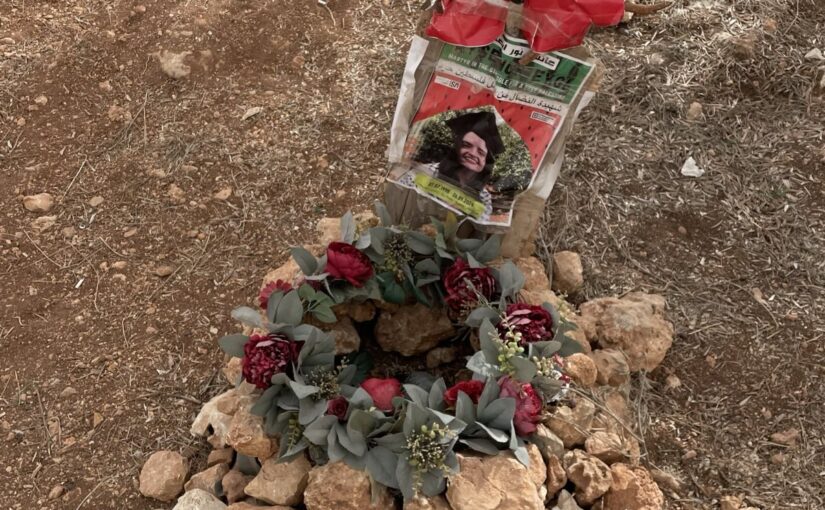-
Fighting Until the Last Breath
October 26, 2024 | Tulkarem-West Bank | Diana Khwaelid What does it mean to bring an entire army battalion with huge military vehicles storming into a neighborhood, to besiege a whole apartment building, in search of a single Palestinian? This is a report of resilience and defiance in the face of the Israeli occupation. On […]
-

Remembering Ayşenur
Beita – October 25, 2024 International volunteers have continued to return to Beita following the murder of Ayşenur, a member of the International Solidarity Movement, despite the Israeli army violently suppressing the peaceful demonstrations. On Friday 25, the day began with tense confrontations from Israeli forces, which forced Palestinians and volunteers to evade soldiers and […]
-
Report from the Commission Against the Wall and Settlements
This report was generated by the Commission Against the Wall and Settlements, and was translated from Arabic to English for ISM. That translation is reproduced here with only minor formatting alterations. Agricultural Outposts: A Gateway towards Forced Displacement It is not possible to create a functional separation between the case of establishing colonial outposts, which […]
Action Alert An Nabi Saleh Apartheid Wall Arrests BDS Bethlehem Bil'in Cast Lead Demonstration Denial of Entry Ethnic Cleansing Farmers Gaza Global Actions Hebron House Demolition International law Israeli Army Jerusalem Live Ammunition Nablus Ni'lin Prisoner Ramallah Rubber-coated steel bullets Settlement Settlers Settler violence Tear-Gas Canister Video
